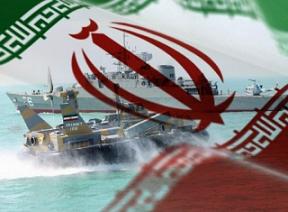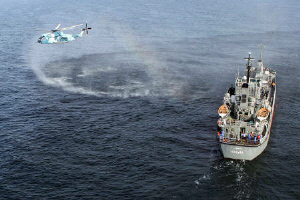The Pentagon announced that the US government does not seek a “confrontation” with Iran over the Strait of Hormuz, one day after Iran warned US aircraft carrier from returning to Gulf waters
 The Pentagon announced on Tuesday that the US government does not seek a “confrontation” with Iran over the Strait of Hormuz, one day after Iran warned US aircraft carrier from returning to Gulf waters.
The Pentagon announced on Tuesday that the US government does not seek a “confrontation” with Iran over the Strait of Hormuz, one day after Iran warned US aircraft carrier from returning to Gulf waters.
“No one in this government seeks confrontation over the Strait of Hormuz,” said Pentagon spokesman George Little. “It is important to lower the temperature,” the spokesman added.
However, he said that the aircraft carrier's "regularly scheduled movements" would continue in the region, but stopped short of declaring any specific measure in response to the warning by the Iranian commander.
"The deployment of US military assets in the Persian Gulf region will continue as it has for decades," Little said.
"We are committed to protecting maritime freedoms that are the basis for global prosperity; this is one of the main reasons our military forces operate in the region," Little said, without referring directly to Iran.
 The Pentagon statement came hours after Tehran's military warned the USS John C. Stennis not to return to the Gulf, in an escalating showdown over Tehran's nuclear drive and two days after Iran wrapped up its 10-day naval drills.
The Pentagon statement came hours after Tehran's military warned the USS John C. Stennis not to return to the Gulf, in an escalating showdown over Tehran's nuclear drive and two days after Iran wrapped up its 10-day naval drills.
Maneuvers displayed Iran’s might, military progress
Iranian Defense Minister Brigadier General Ahmad Vahidi stressed the warning against the US navy presence saying “Iran will do anything to preserve the security of the Strait of Hormuz”.
“The presence of forces from beyond the (Gulf) region has no result but turbulence. We have said the presence of forces from beyond the region in the Persian Gulf is not needed and is harmful,” he was quoted as saying.
Velayat 90 maneuvers have displayed the capability of the armed forces of the Islamic Republic indicating that various types of military hardware manufactured by the Defense Ministry were tested during the exercises.
He said that the armed forces tested advanced electronic and optical communications systems successfully, as well as domestically-manufactured surface-to-surface, coast-to-sea, and sea-to-coast missiles.
Armed Forces Chief of Staff Major General Hassan Firouzabadi said the world bullying powers were bewildered by Iran’s defense progress.
He was quoted by IRNA as saying that the West was after imposing a culture on the world according to which only the hegemonic powers get a full mark while the majority of the world countries fall below the line.
“Now they are astonished to see that Iran is getting scores much higher than what they expect it so they are unable to understand the degree and depth of Iran’s scientific and technological achievements,” Firouzabadi added.